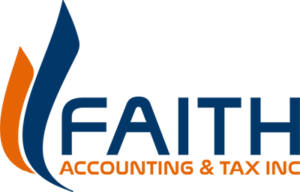Taxation of personal services can be confusing, especially for self-employed people. Whether you freelance, consult, or work as an independent contractor, comprehending one’s tax liabilities and business structuring is significant. The goal of this blog is to demystify the process and present essential information that the public requires.
What are Personal Services?
They are activities done by individuals using their own knowledge and abilities in various fields, such as:
- Consultants offer advice in particular professional matters in which they have expertise.
- Freelancers assist with jobs like writing, editing, graphic designing, or web development.
- Independent Contractors complete assignments given by clients on a contract basis.
Tax Implications of Personal Services:
Whenever you provide your services personally, your income will generally be referred to as Personal Service Income (PSI). The taxation of these earnings differs from regular employee salaries. What do you need to understand?
- Rates of taxes: “Personal service income” is generally taxed at the total marginal rates, which can be higher than the corporate tax rate.
- Deductions: There may be certain expenses related to your service provision that you can claim against the business such as equipment/software used or travel/office stationary consumed among others.
- Record keeping: It is important to maintain accurate records of income and expenditures for tax purposes. These include invoices, receipts, and bank statements.
- Tax Filing : Each year, you will need to submit a self-assessment tax return form showing your earnings details and paying any levies due on them.
Structuring Your Business:
Incorporating could be an option worth considering if you render personal services frequently. Some benefits of doing so include:
- Limited Liability Protection: Separating your personal property from those owned by a corporation protects you from liability for any legal actions or financial misfortunes that occur within it.
- Tax Benefits: Depending on individual circumstances and family composition, incorporating could lead to tax savings as incomes are split.
- Professional image: Operating under an incorporated status can help you present yourself more professionally and gain credibility.
Important Considerations:
While incorporating can be beneficial, it also involves additional complexities:
- Compliance Requirements: Corporations have more regulations and reporting standards than sole proprietorships or partnerships.
- Administrative Burden: Setting up and running a corporation takes more time and money compared to sole trader operations.
Seeking Professional Advice:
The maze of personal services and taxes is complex to navigate through. It is helpful to consult with your tax consultant or accountant, who should guide you within the law’s framework. They can assist you with:
- Choosing a business structure– that best suits your particular situation and goals.
- Understanding tax obligations- ensure all eligible deductions are claimed.
- Accuracy in filing – avoiding fines while paying as little tax as possible.
If one has basic knowledge on personal services and taxation, they will be able to make right decisions about business structures while fulfilling their tax obligations. Finally, remember that getting professional advice will help you avoid complexity associated with personal services which may maximize your profitability equally well.






